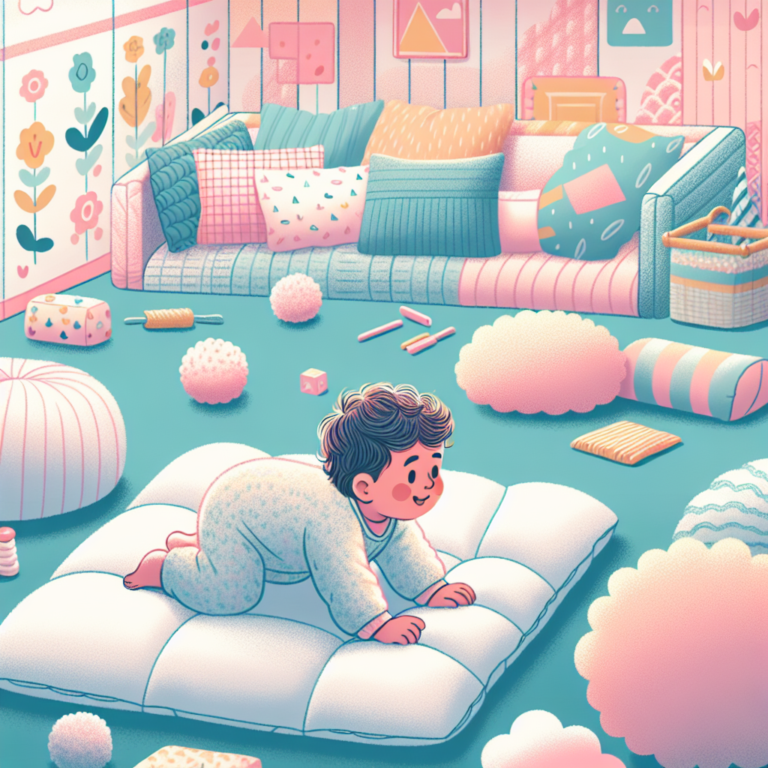Becoming a parent is a transformative journey filled with joy, challenges, and endless questions. As new parents embark on this adventure, they often find themselves navigating a whirlwind of emotions and responsibilities, especially during their baby’s first year. It’s a time when guidance and support become invaluable. In this article, we delve into essential tips that can help new parents not only survive but thrive during these precious early months. We also explore how to create a safe and nurturing environment by effectively baby-proofing your home. With insights and practical advice, this guide aims to empower parents as they embrace their new roles and ensure their baby’s well-being and happiness. Whether you’re a first-time parent or looking to refresh your knowledge, these sections are designed to support you every step of the way.
1. “Essential Tips for New Parents: Navigating Baby’s First Year”
Navigating a baby’s first year can be both exhilarating and overwhelming for new parents. It’s a time filled with joy, sleepless nights, and countless questions. Here are some essential tips to help parents successfully journey through their baby’s first year.
Firstly, establishing a routine can be immensely beneficial. Babies thrive on consistency, and setting a schedule for feeding, naps, and bedtime can help create a sense of security for both the baby and parents. While flexibility is key, having a general structure can make the day feel more manageable.
Another important aspect is understanding and responding to your baby’s cues. Babies communicate their needs through cries and body language. Learning to interpret these signals allows parents to respond effectively, whether it’s feeding, changing, or simply offering comfort. Over time, parents will develop an intuitive understanding of their baby’s unique needs.
Prioritizing self-care is crucial for new parents. It’s easy to become consumed by the demands of caring for a newborn, but maintaining physical and mental well-being is important. Parents should make time for themselves, whether it’s a quick walk, a nap, or a few moments of meditation. This self-care helps recharge energy levels, allowing parents to be more present and patient with their baby.
Seeking support is essential. The first year can be isolating, but connecting with other parents, family, or support groups can provide invaluable advice and reassurance. Sharing experiences with others who are in the same stage of life can help alleviate feelings of stress or inadequacy.
Finally, it’s important for parents to embrace the imperfections. No one has all the answers, and each baby is unique. Mistakes are part of the learning process, and it’s important to approach them with humor and grace. Celebrating small victories and cherishing the special moments will make the journey all the more rewarding.
 Also Read:
Parents’ Guide: Essential Tips and Bonding Strategi...
Also Read:
Parents’ Guide: Essential Tips and Bonding Strategi...
By focusing on these essential tips, parents can navigate the first year with confidence, building a strong foundation for their baby’s development and their own parenting journey.
2. “Creating a Safe and Nurturing Environment: Baby-Proofing Your Home for Parents”
Creating a safe and nurturing environment is a top priority for parents, especially when welcoming a new baby into the home. Baby-proofing is an essential step to ensure that your living space is both secure and supportive for your growing child. By taking proactive measures, parents can help prevent accidents and create a safe haven where their baby can explore and develop.
Start by getting down on your hands and knees to see the world from your baby’s perspective. This approach allows parents to identify potential hazards that might not be immediately noticeable from an adult’s viewpoint. Look for sharp corners, electrical outlets, and small objects that could pose choking risks. Installing corner guards, outlet covers, and safety gates can significantly reduce these dangers.
Securing furniture is another crucial aspect of baby-proofing. Babies are naturally curious and will try to pull themselves up using whatever is within reach. Parents should anchor heavy furniture, such as bookshelves and dressers, to the walls to prevent them from tipping over. Additionally, ensure that cords from blinds and curtains are out of reach to avoid strangulation hazards.
In the kitchen, parents should use childproof locks on cabinets and drawers to keep little hands away from harmful substances and sharp objects. Storing cleaning products, medications, and other hazardous materials in high, locked cabinets is a smart practice. When cooking, use the back burners and turn pot handles inward to prevent accidental spills.
Bathrooms also require careful attention. Install locks on toilet lids and keep bathroom doors closed when not in use. Parents may also consider placing non-slip mats in the bathtub and securing rugs on the floor to prevent slips and falls.
By systematically addressing these potential risks, parents can create a home environment where their baby is free to safely explore and thrive. Baby-proofing is an ongoing process, and as babies grow and develop new skills, parents should continuously reassess their home for new hazards. Taking these steps not only ensures safety but also provides peace of mind, allowing parents to focus on nurturing and enjoying their time with their baby.
